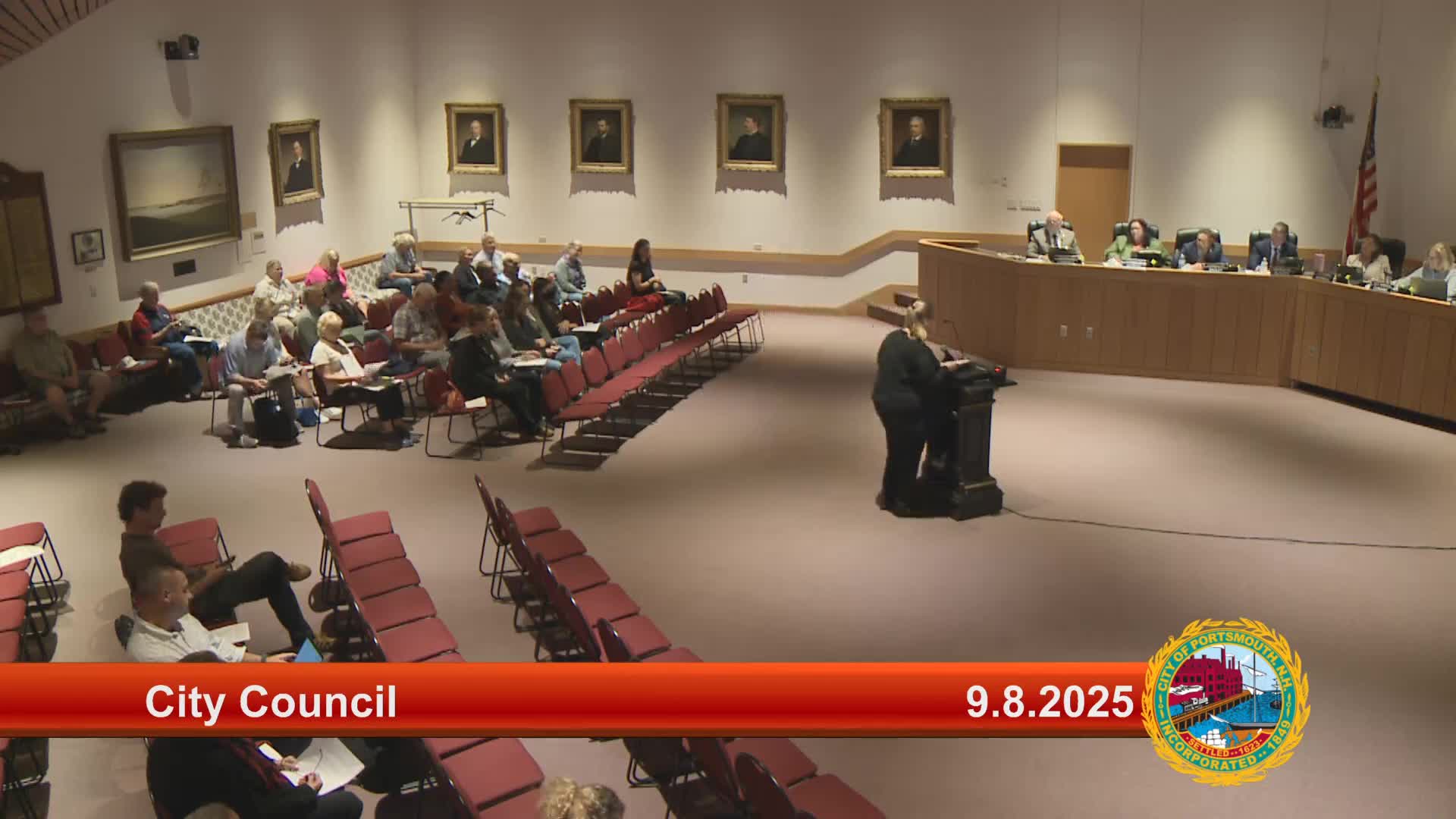Article not found
This article is no longer available. But don't worry—we've gathered other articles that discuss the same topic.
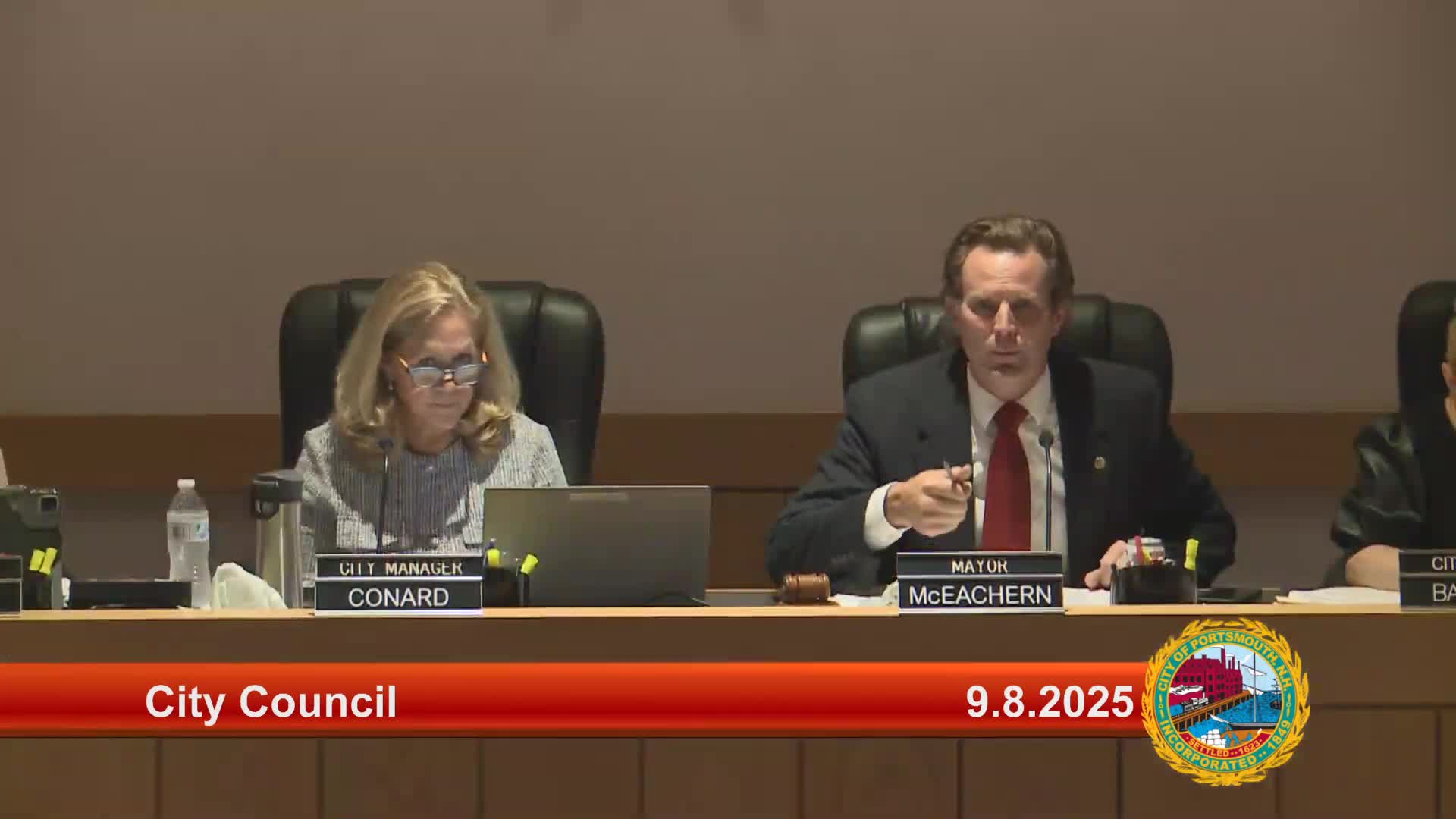
Portsmouth council adopts administrative-code changes to centralize IT and HR authority after heated debate
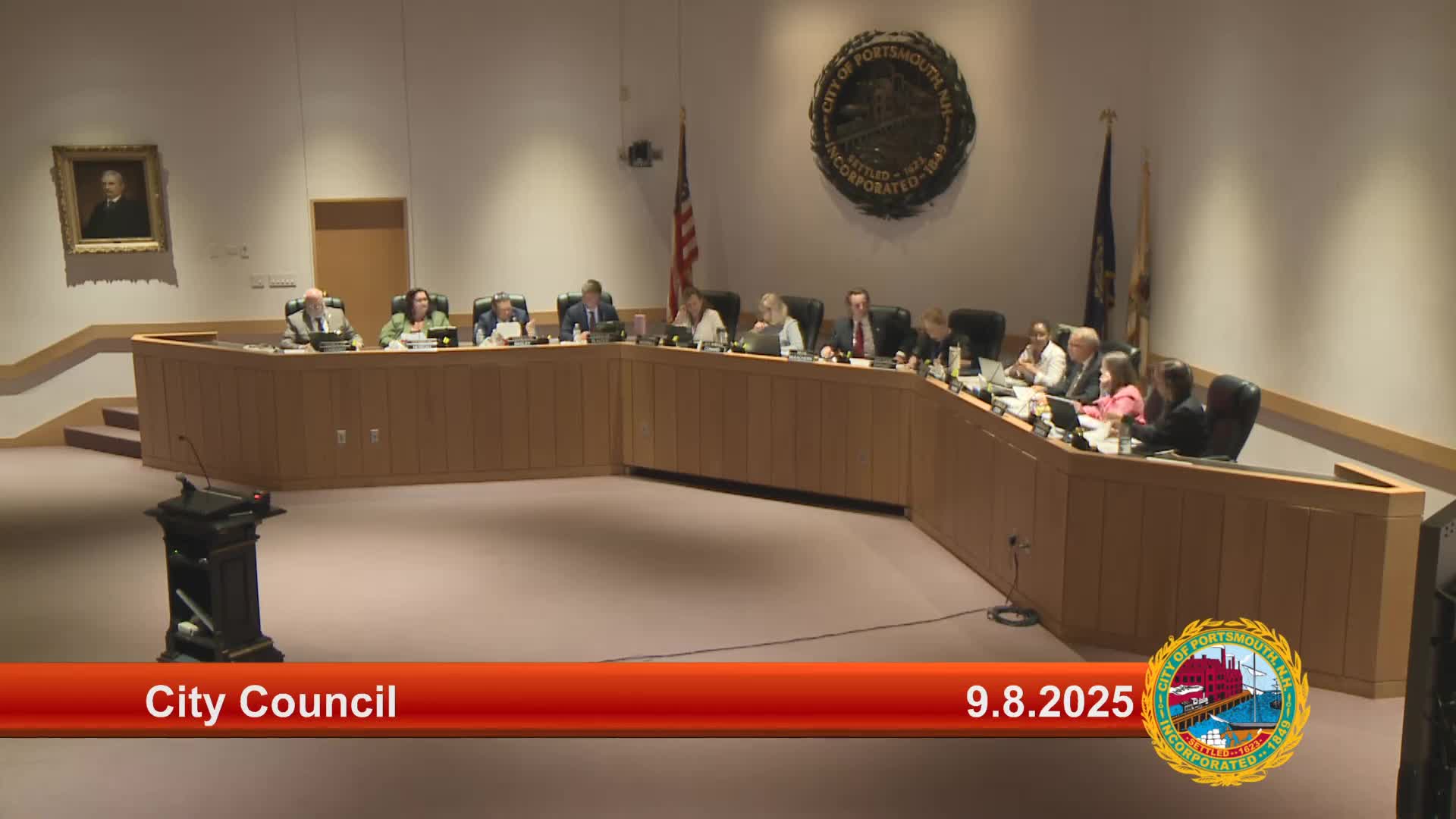
Council directs staff to develop resident-parking access plan, asks for pilot options
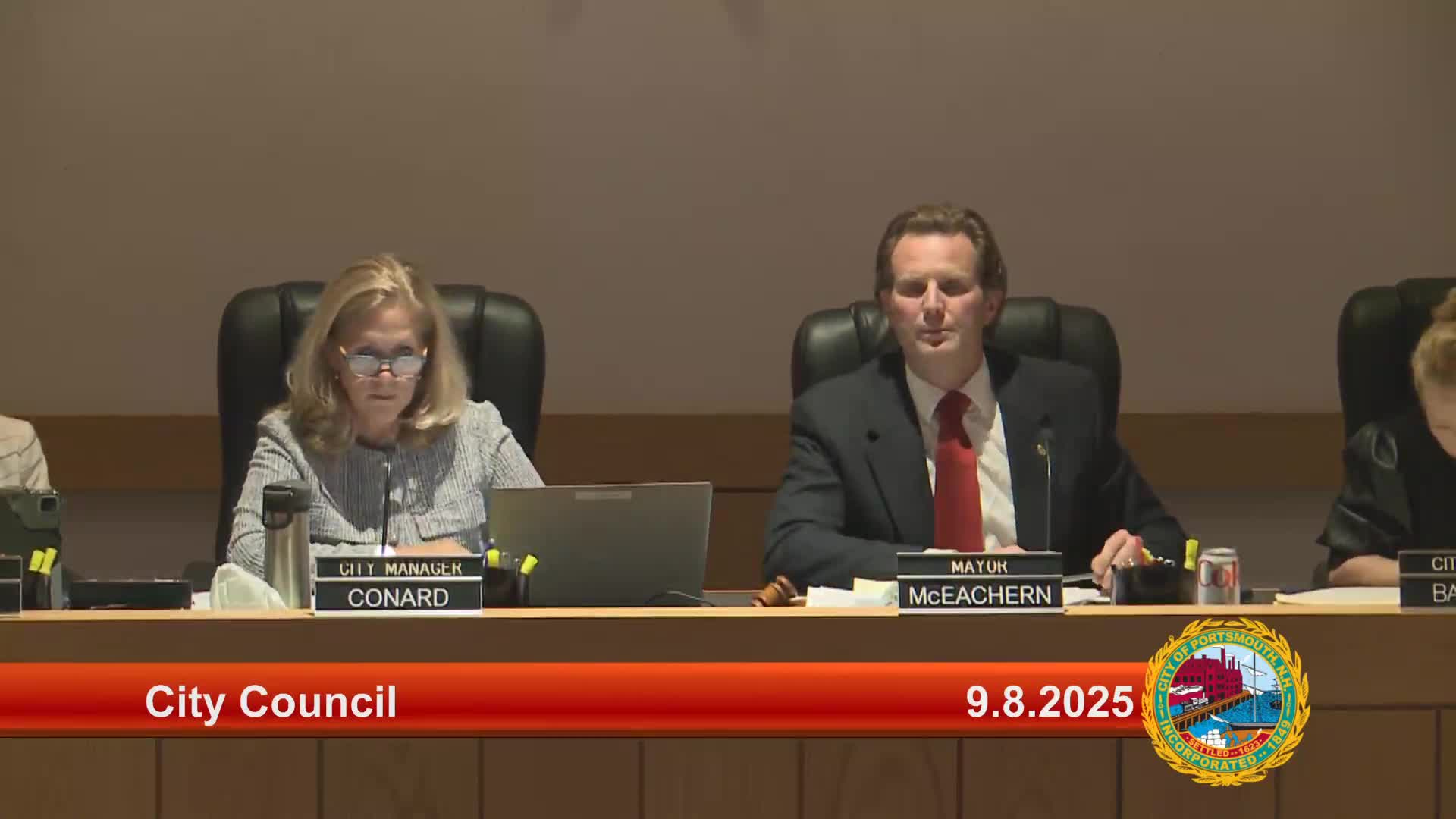
Council amends 2022 bond purpose to cover full municipal complex work; vote 8–1
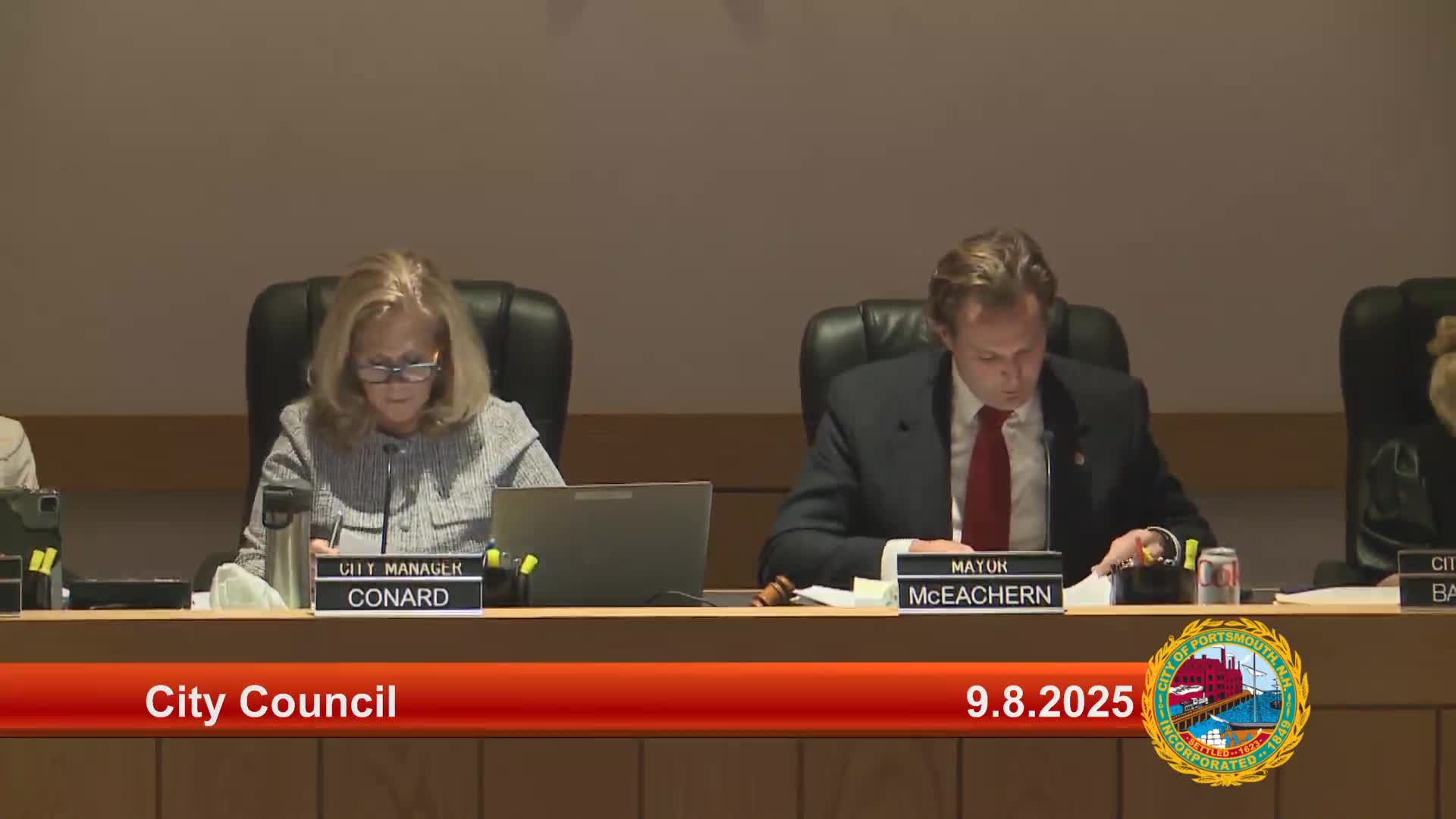
Council advances zoning map changes for Islington Creek neighborhood; public feedback mixed
